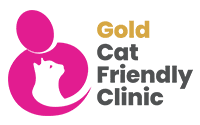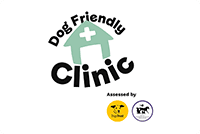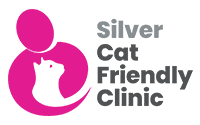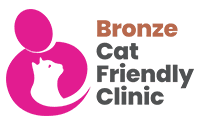Weight gain can creep up on our London, Hertfordshire, and Cambridge residents, and it’s no different with your cat, but having that extra pound or two does make a huge difference to your cat’s well-being and long-term health. Tackling weight loss, however, needn’t be a weight on your mind. At Village Vets, we can support with nutrition and exercise plans that will support your cat’s journey to reach their optimum weight for their age and breed.
Book a weight check consultation with us at Village Vets
Food for thought

Your cat's diet will be integral to this, as this is probably the single most important factor in promoting and sustaining a healthy weight. It is not just the amount that is imperative to get right, but the type of food and number of times per day your cat should eat.
Your cats require a good daily dose of vitamins D and E, a source of Omega 6 and a balanced intake of minerals. When choosing cat food, be sure to read the packaging to ensure the nutritional requirements are met, whether the food is wet or dry. Cats can be fussy eaters so you may have to try a variety of options to see which one suits your cat’s needs the best.
Quench their thirst
Do ensure a bowl of clean drinking water is available throughout the day for your cat, no matter how regularly you feed them. Milk is no substitution for water and is best avoided, no matter how much your cat may lap it up.
Feeding time
How often and how much you feed your cat in London, Hertfordshire and Cambridge can be advised by your veterinary team here at Village Vets as this will depend on several factors including age, breed, weight, and activity level. It’s important to remember that your cat will have different dietary requirements at different life stages so do check with your veterinary team along the way.
Food glorious food
There are certain foods that should be avoided at all costs because they are inherently dangerous:
- Onions
- Garlic
- Raisins and grapes
- Macadamia nuts
- Bread dough
- Alcohol
- Anything containing artificial sweeteners
Cats cannot effectively process carbohydrates which is why dog food (heavy in carbohydrates) is a no-go. Sticking to a meaty, nutritionally balanced and nutrient-rich cat food is the best way to help sustain and promote a healthy weight for your cat.
For any questions you may have, please book one of our weight clinics and speak to our friendly team at Village Vets





